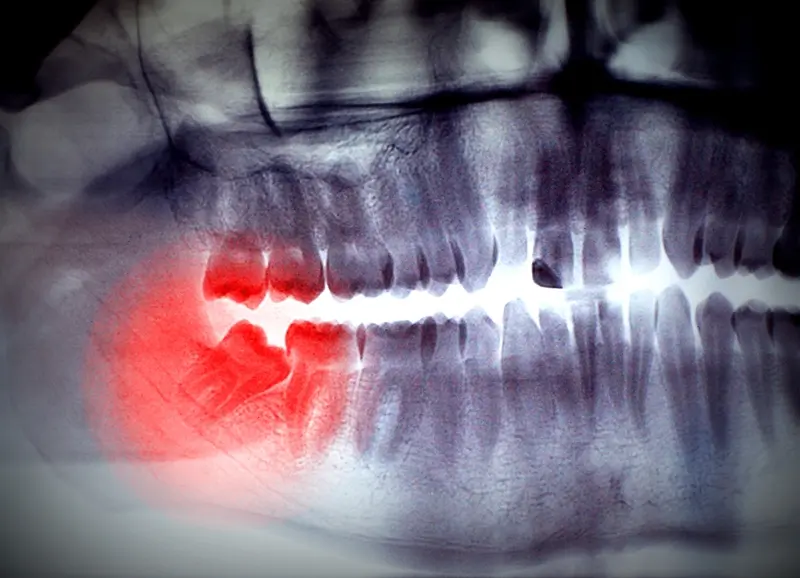It may seem a little odd that we like to call the third set of molars “wisdom teeth” – after all, they aren’t considered necessary and can often cause a lot of pain. We call them this because they generally come through well after the rest of our permanent teeth, between the ages of 17 and 25 – the years in which we supposedly grow wiser.
But hold on a minute, if wisdom teeth aren’t necessary why do we have them at all? We can answer that for you. Let’s start by going back around 100 million years …
Wisdom teeth in prehistoric times
Times, diets and jaws have changed.
To understand the function of wisdom teeth we have to start with prehistoric man.
Our paleolithic ancestors walked on all fours, using their front limbs for balance and running. Because of this, their jaws were the primary means of catching and consuming prey. Combined with a texturally tough diet of leaves, roots and raw meat, this meant that they needed larger mouths and 32 teeth worth of chewing ability. So, that’s exactly what they had. The third molars functioned to assist in grinding and chewing fibrous foods and the mouth had more space for teeth and catching prey.
However, times, diets and jaws have changed.
Wisdom teeth today
Eventually, we developed diets featuring softer foods such as bread and cooked meat, and even created tools with which we could acquire, cut and tear food. As a result, we became reliant on our hands and cutlery for taking a lot of work out of chewing.
As eating became easier, we evolved to have less prominent jaws and smaller mouths. So, there’s no longer enough space for wisdom teeth.
 Impacted wisdom teeth can cause a great number of complications.
Impacted wisdom teeth can cause a great number of complications.Why do we remove wisdom teeth?
Wisdom teeth aren’t always a problem. For some people they simply don’t come through, while others may be able to accommodate them. That said, those who do grow wisdom teeth comfortably may need to have them removed if they cannot easily be reached for cleaning.
When the third set of molars erupt improperly, they can become impacted by neighbouring teeth. Along with being incredibly painful, impacted teeth can lead to infection, decay, damage to neighbouring teeth, cyst development or jaw fracturing.
To avoid future complications, most dentists will advise early removal of wisdom teeth under local anaesthesia. Once anaesthesia has kicked in, a small incision in the gum will be made to access the tooth, and some bone may need to be removed in order to extract the tooth. Then, stitches may be made in the gum to encourage healing.
When it comes to wisdom teeth, the earlier you act, the better. Book online with us today for an evaluation of your wisdom teeth.
